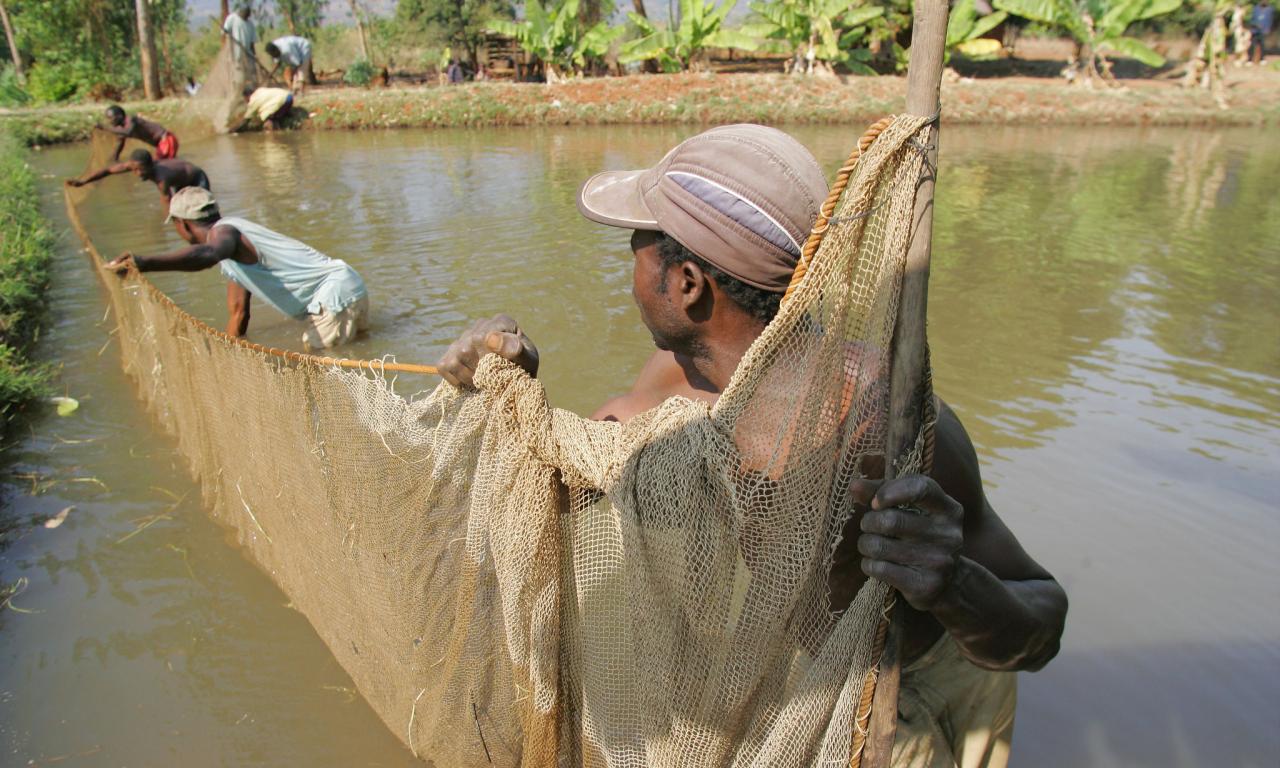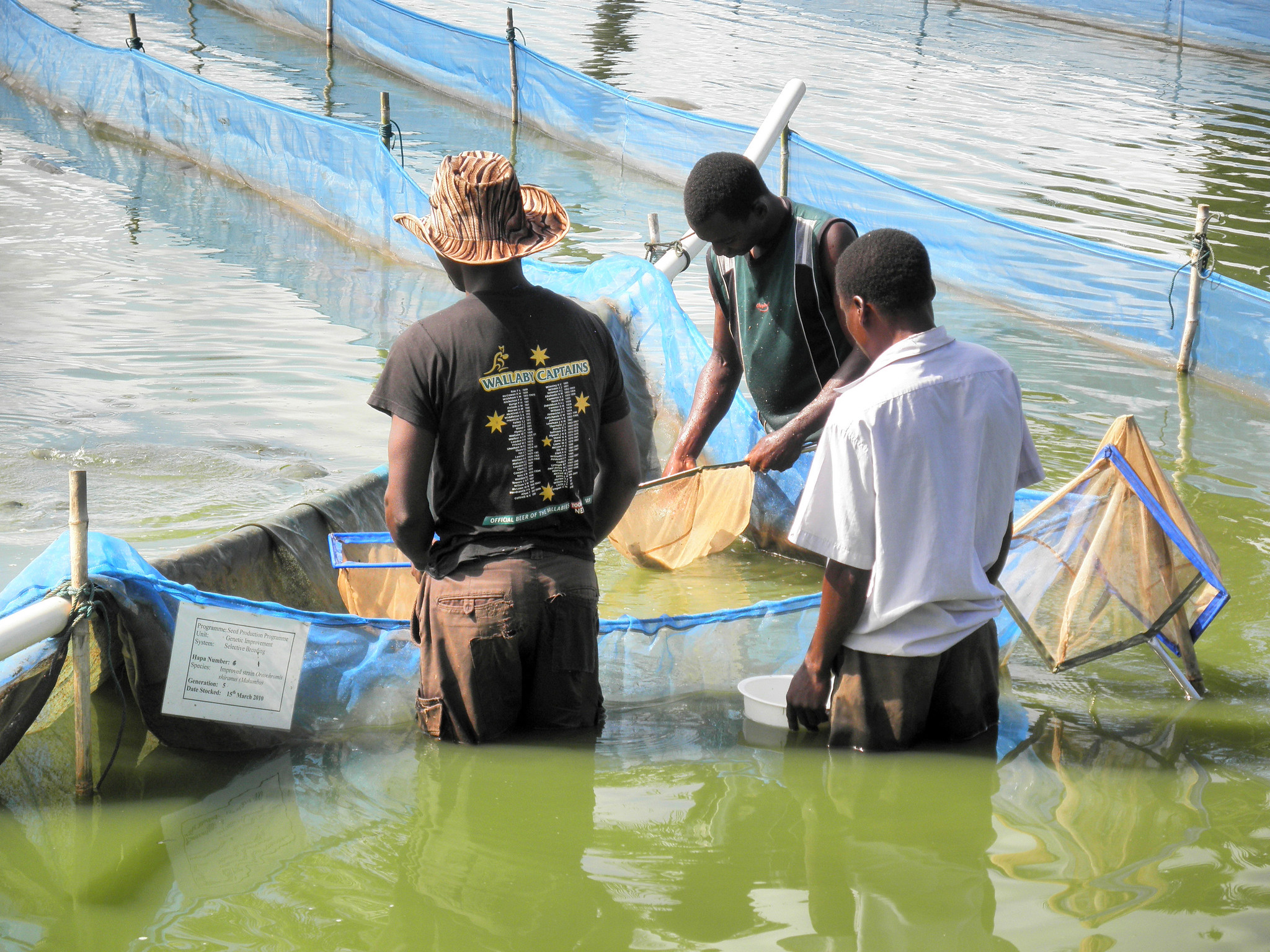
The declining availability of wild caught fish and a growing population necessitate greater investment in aquaculture value chains. Per capita fish consumption has decreased in recent years due to heightened demand and reduced supply.
Although Malawi has an extensive history of fish farming spanning a century, the nation’s smallholder aquaculture sector has yet to realize its full potential. Building the sector’s capacity can offer a sustained fish supply to improve food and nutrition security – a critical achievement for a nation vulnerable to food scarcity.
While Malawi has historically been more reliant on capture fisheries from inland water bodies, the declining availability of wild caught fish and a growing population necessitate greater investment in aquaculture value chains. Per capita fish consumption has decreased in recent years due to heightened demand and reduced supply.
Fish provide vital micronutrients during the first 1000 days of life and are the primary animal-source food available in Malawi, where 37 percent of children are stunted from micronutrient deficiencies. A further quarter of child deaths in the country are related to undernutrition.
A series of donor funded development projects have thus sought to develop and increase smallholder aquaculture through freshwater pond culture – the predominant type of fish farming across the country, where fish are reared in backyard dugout ponds. Successful pond production requires quality inputs including nutritious fish feed, quality broodstock, or mature fish used for breeding purposes, and fish fingerlings, juvenile fish needed for pond stocking.
Despite ongoing interventions, a lack of commercial inputs in value chains persists. The current shortage of hatcheries capable of producing and rearing quality fingerlings remains a major barrier to development for the smallholder aquaculture sector.
Under KULIMA, a 5-year project funded by the European Union to promote sustainable agricultural growth for improved income, employment, and food security, WorldFish has established a pond-based hatchery in southern Malawi to increase the distribution of quality fingerlings to rural fish farmers. The hatchery contains two monosex ponds to separate males and females and a breeding pond, fitted with a fish fry collection point, where young fish can be harvested and transported to other farmers.
Building capacity with new inputs

Due to the scarcity of hatcheries, fish farmers often rely on recycled fingerlings purchased from neighboring farmers. Recycling of fingerlings reduces the genetic variation and resilience of fish, making them more vulnerable to diseases. This ultimately produces lower yields relative to farming operations with a steady supply of new fingerlings each season.
In order to address the lack of a reliable supply of quality fingerlings, the KULIMA program is working to establish pond-based hatcheries in all the ecological zones in Malawi. This will improve the production, distribution, and accessibility of fingerlings, allowing more households to engage in aquaculture.
In the Southern region, the climatic conditions are highly favorable, and water is available throughout the year. The region has untapped potential to improve food security across the country and provide a dependable year-round supply of fish.
WorldFish researchers are training established hatchery operators on monosex fish production to improve efficiency, making fish more available to undernourished communities – male fish in monosex systems have improved growth rates compared to those in mixed sex ponds. Selective breeding programs are also being implemented to maintain genetic diversity in different lines of broodstock.
Supporting the development of small-scale hatcheries is one effective way to promote the commercialization of Malawian aquaculture. Developing the nation’s aquaculture sector will ultimately increase resilience and food security in times of climatic shocks, ensuring good nutrition for even the most vulnerable.
Acknowledgements
WorldFish is a member of the Consultative Group of International Agricultural Research (CGIAR) and is partnering with other centers including ICRAF, CIP, CIMMYT, CIAT, IITA and ICRISAT in project implementation. The CGIAR centers, along with the German development agency GIZ, are working to enhance the delivery of extension services to farmers and develop sustainable, high quality seed supply systems.